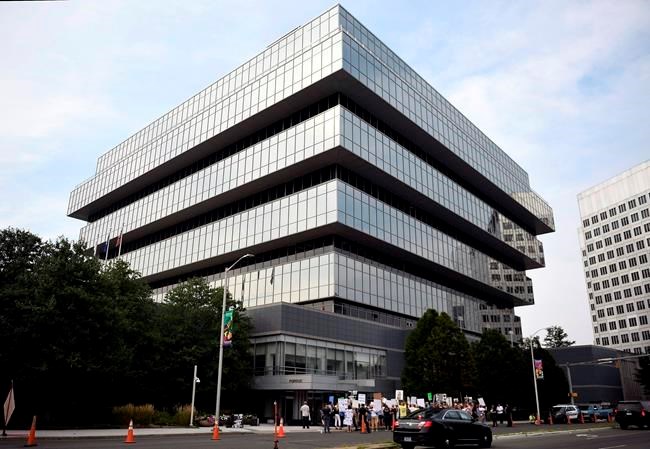 British Columbia will never get more than a few crumbs from the huge potential settlement being discussed in the U.S. over drug companies’ culpability for the opioid epidemic.
British Columbia will never get more than a few crumbs from the huge potential settlement being discussed in the U.S. over drug companies’ culpability for the opioid epidemic.
But the value is so vast, even crumbs might be big enough to make it a worthwhile legal pursuit — if Attorney General David Eby doesn’t mind growing old waiting for them to fall off the table. The idea of suing the drug companies is modelled after the suit B.C. launched against the tobacco industry for health-related costs. That started more than 20 years ago and is still a work in progress.
Still, there are billions of dollars up for grabs in the opioid blame hunt, and there’s no real downside to trying for some of it.
Eby announced 14 months ago that B.C. was filing a class-action suit against about 40 drug companies. The aim is to recover millions of dollars in opioid-related health-care costs, on grounds the drugs were deceptively marketed.
“It's time opioid drug companies take responsibility for the human and financial toll their products have taken,” he said at the time.
He followed it up with a bill that was also modelled on the tobacco case. It defined acceptable evidence in such a case to make it easier for B.C. to win.
The new law allows the courts to consider statistical data, budget information and population-based evidence of government’s opioid-related costs, rather than having to introduce each expense record for individual patients.
Various other provinces have joined the suit, which is structured as a national case. Eby is welcoming all comers.
The highest-profile target is Purdue Pharma and the wealthy family associated with it, the Sacklers.
Last month Eby said his ministry was monitoring the massive U.S. litigation effort against the firm with interest. At the time there was a tentative agreement on the table to resolve the suits. It included the Sackler family personally offering $3 billion US as part of a “global resolution.” The company itself is offering far more.
The only problem is that global is defined as U.S.-only, which would freeze out Canadian jurisdictions. They would have to pursue Canadian subsidiaries separately. And there is a risk that Canadian subsidiaries would be sold off by U.S. companies to produce cash to settle the U.S. claims.
Eby said any global resolution has to account for Canadian claims as well, a stand that is so far being ignored.
Eby said that if B.C. isn’t included, “we are determined to continue to pursue our claims against the Purdue entities and against members of the Sackler family to the fullest extent permitted by law."
That pursuit will continue next month, when the ministry will appear in B.C. Supreme Court to apply to add the Sackler family to the long list of defendants.
The step is an effort to protect Canadian and B.C.’s interests in not being excluded from what’s supposed to be a global settlement.
In the meantime, Eby is heartened by the number of provinces who have joined in.
“The more we have, the more likely it is we’ll be able to reach a satisfactory resolution, for the damage they’ve caused.”
The Canadian entities are just as liable, he said, and “if Canadian assets are going to be sold, they should be going to compensate Canadians and Canadian families for what’s happened here.”
The phrasing is unclear, but if that’s a reference to direct compensation to victims it would be a departure from the stance to date.
The suit is set up as a health-care cost recovery action, meaning the governments would get the settlement. Earlier statements referred to how the award might be applied to alleviate government’s health-care costs related to opioids.
But B.C. is a long way from seeing the money. The tentative settlement he referred to is still up in the air. It involved Purdue Pharma putting up billions of dollars then declaring bankruptcy.
The company took that step three weeks ago, but several states are declining the settlement and are intent on pursuing the Sacklers personally, for more.
B.C. will be joining that pursuit, but it’s at the end of a long line.Ěý
Ěý
Ěý



